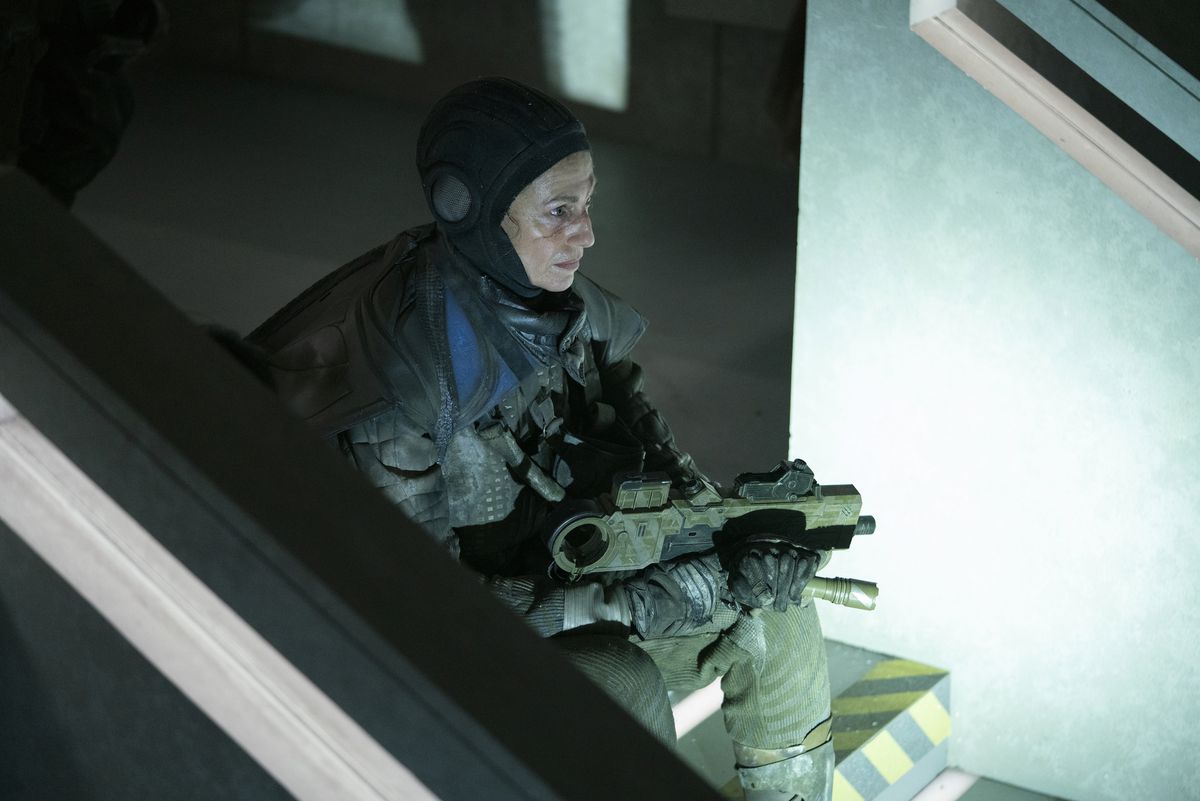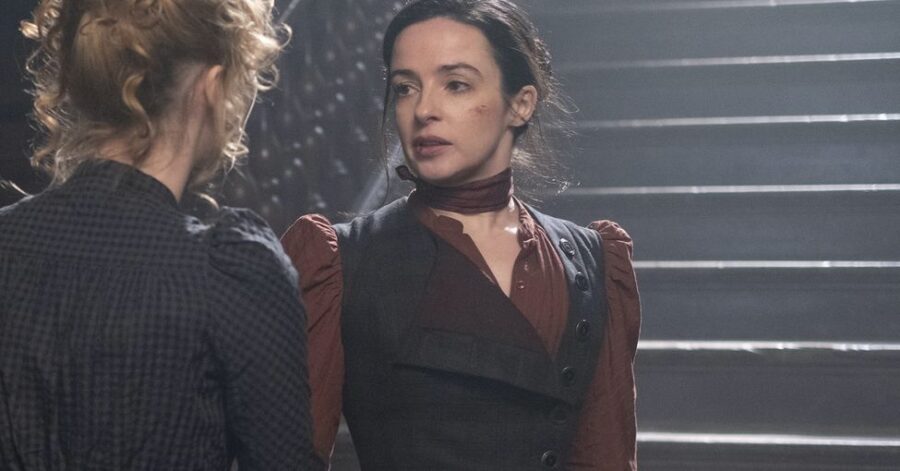Though the first episode of The Nevers revealed an extraterrestrial explanation for how the women of Victorian-era London gained superpowers overnight, the rest of the freshman HBO series’ first season was more steampunk than classical sci-fi. That was until episode 6, Sunday’s “Part 1” midseason finale, when the full scope of the series came into view.
“At times it felt like a math problem,” Laura Donnelly, who plays Amalia on the series, jokes to Polygon. “This was the part that made me want to play the role. I had the chance to play somebody incredibly complex and layered, 90% of whom is hidden from everybody else. That’s always really attractive from an acting point of view, to be able to have so much going on under the surface that you just can’t show.”
[Ed. note: This post contains major spoilers for The Nevers through episode 6.]
After devoting an hour to busting the villainous Maladie out of jail, and the ethical debate that sends Penance and Amalia running in different directions, episode 6 picks up … in the far future. Many viewers likely checked their HBO accounts to make sure they were watching the right show, but yes, this was actually The Nevers. Directed by Zetna Fuentes and penned by Jane Espenson, “True” picks up with a group of Planetary Defense Coalition soldiers dedicated to defending the alien entities known as the Galanthi. In a war torn base, they discover one remaining creature, who escapes via portal and takes the soul of “Stripe,” aka Zephyr Alexis Navine (Claudia Black), with it. The Galanthi ends up in the 1890s, and while the arrival imbues the women of London with new abilities, the being also plants Zephyr’s spirit in the body of Molly, a battered housewife who’s decided to end her own life. The disembodied future solider and Victorian host fuse to become the Amalia that we know — but not quite.

This is where the acting math comes into play. Midway through the episode, when Zephyr awakens in Molly’s body, Donnelly is playing the soldier we’ve seen on screen early in the episode with the physicality of the more delicate Molly. When it becomes clear what the Galanthi has done to society, Zephyr decides to adapt to society and take on the persona of “Amalia.” Talking the talk and walking the walk takes practice, with Fuentes and Espenson giving us a few montage moments of Amalia figuring out how to accurately present herself.
For Donnelly, that meant establishing Molly’s Yorkshire accent, since she’s from North England, then emulating Zephyr, performed by Australian actor Clauda Black with a Canadian accent, and then charting vocal mile markers on the way to Amalia’s posh British accent. Which, it should be said, is not Donnelly’s actual voice: She’s from Ireland.
Donnelly says she and Black connected early on to discuss the character(s), and record of all the lines so that Victorian-era Zephyr would sound like her future incarnation. “Claudia has very specific vocal quality and very specific cadences in how she talks, and I wanted to get a handle on all of that,” Donnelly says. The challenge is that The Nevers was shot out of sequence, and that all of the scenes set in the future were shot after Donnelly had transformed from Zephyr into Amalia. So to prepare, Donnelly spent hours sifting through Black’s old work on sci-fi shows like Farscape and Stargate SG-1, and roles in which she played Americans. “I didn’t have the real footage we were going to use on [The Nevers], so it meant researching on my own on YouTube.”
Then there was the weight of the situation. Donnelly carries the burden of her futuristic persona through the entire first season of The Nevers, but only now would that emotional baggage be evident to anyone watching. There are moments scattered throughout where Amalia, somehow, knows the modern names of Penance’s inventions. In episode 3, the girls of the orphanage invite Amalia to join them in singing songs, asking if there’s one she’d like to hear. “None you’d know, but keep playing,” she says with a tinge of sadness. Makes sense.
Donnelly says those moments where Amalia brushes against culture and found family were the anchors she needed to play a character displaced from time, and alone in her secretive world. They also make The Nevers fun to rewatch. “I hope people want to watch from episode 1 again because you kind of then get a whole new show,” she says.
What should fans expect from the next wave of The Nevers now that the past — and future — is clearer?
“The first six episodes are like an extended prologue, in a way,” Donnelly says. “In one way, lots has changed. And in another way, nothing has changed because she’s had this connection suddenly with the Galanti and she knows that it’s there. At least it’s been confirmed that she is essentially in the right place at the right time. She is supposed to be doing this, but she still doesn’t have a map forward. So I think it’s going to be fascinating to watch how she navigates this, this version of herself. It was a lot easier to be Amalia, where she didn’t have to answer any questions, where people just took the fact that she knew that was a mission. Now she’s decided that she’s going to have to include them in all the information. I think that that’s going to be a lot trickier for her, navigating that hurting, where she’s got to be some kind of real person with them.”
Polygon – All
Source link
Related Post:
- 10 Most UNSETTLING Plot Twists in Video Games
- Ghost of Tsushima Archery Challenge guide: All Archery Challenge locations
- Hideaki Anno Wants to Explore the Neon Genesis Evangelion Timeline
- Destiny 2’s new Timeline feature is an educational storefront
- A third of the games at E3 2024 were non-violent, a big increase over 2019
- Big-big screen gaming | PC Gamer
- Why Resident Evil Village's Heisenberg's Factory And The House Sections Were Simply Superb
- Crapshoot: A look back to when sports games were even worse than today
- “Within a day all private server hosts were sold out” – How GPORTAL managed the Valheim boom
- What were the most talked about games of E3 week?
